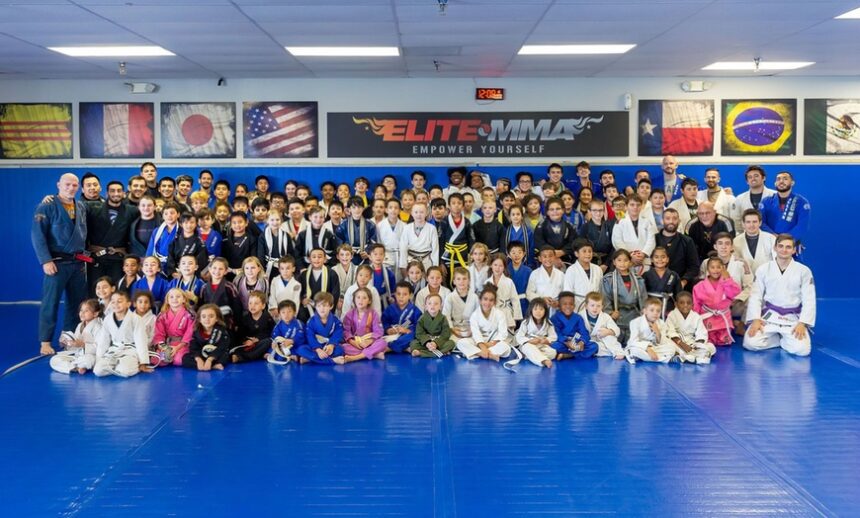In a sleek, sweat-slicked training facility just minutes from Abu Dhabi’s Etihad Arena, the rhythmic thump of gloves on pads echoes like a battle hymn. Fighters of all backgrounds—Emirati, Jordanian, Filipino, Brazilian—circle a central cage, absorbing instructions, executing precise moves. At the center stands Coach Samir Haddad, the architect of the UAE’s meteoric rise in the world of mixed martial arts (MMA).
In just under a decade, Haddad has turned a modest personal training studio into the nerve center of the UAE National MMA Program, now home to ranked fighters, international champions, and the region’s most comprehensive fight science program.
“We’re not here to mimic the UFC,” Haddad says with a grin. “We’re here to define what Arab MMA looks like on a global stage.”
Early Days: Fitness Roots and a Fighter’s Spirit
Born in Beirut and raised in Dubai, Samir Haddad was introduced to martial arts at age 11 through karate and later transitioned into Brazilian jiu-jitsu and Muay Thai. After earning certifications in personal training and combat conditioning, Haddad opened Alpha Core Gym in 2012—a fitness center that combined functional training with combat sports for general clientele.
But it didn’t take long for local talent to emerge.
“Guys would come in for fitness—and I’d see the raw instinct, the hunger,” he recalls. “So we started building a fight team.”
That small crew, dubbed the Desert Lions, would eventually evolve into the UAE’s first organized, performance-driven MMA academy.
Building Alpha Core Fight Club: The Engine Behind UAE MMA
By 2017, Alpha Core Fight Club had become a breeding ground for top-tier talent. With support from the UAE Jiu-Jitsu Federation and the Department of Youth and Sports, Haddad began assembling a multinational coaching staff, including:
- Former UFC striking coaches from Brazil
- Olympic-level wrestling instructors from Dagestan
- UAE-trained strength and conditioning specialists
- In-house physiotherapists and sports psychologists
The club’s training regimen included:
- Striking: Muay Thai, boxing, kickboxing
- Grappling: Jiu-jitsu, wrestling, sambo
- Cage Tactics: Octagon control, wall work, ground-and-pound drills
- Mental Training: Visualization, pressure simulation, and fight IQ modules
Today, Alpha Core houses over 40 elite fighters, including the UAE’s top-ranked featherweight and two regional titleholders.
The National Team: A Desert Dream Realized
In 2020, Haddad was tapped by the UAE MMA Federation to design and lead the official national team program, preparing athletes for IMMAF (International Mixed Martial Arts Federation) events and ultimately, UFC and ONE Championship opportunities.
Under his leadership, the national program:
- Created a three-tiered talent pipeline: Junior, Amateur, Pro
- Hosted national qualifiers with over 2,000 participants annually
- Sent teams to compete in IMMAF World Championships, earning 7 medals since 2021
- Partnered with UAE University and Zayed Sports Academy for dual-career athlete programs
“We’re not building brawlers,” Haddad insists. “We’re building technicians, ambassadors, and future champions.”
Stars in the Spotlight
Among the many fighters Coach Haddad has developed, several are now making international headlines:
- Hassan Al-Balooshi (Lightweight): 2024 IMMAF World Champion, currently signed to UAE Warriors
- Dina Al-Harithi (Flyweight): The first Emirati woman to win an international MMA bout, and a symbol of regional change
- Leo Fernandez (Bantamweight): Filipino-Emirati fighter now 6–0 professionally, with a UFC contract rumored for 2026
All attribute their success to Haddad’s unique style—a blend of technical brilliance, cultural sensitivity, and intense personal investment.
“Coach Samir believed in me before I believed in myself,” says Al-Harithi. “He’s not just a coach—he’s a cornerstone.”
Breaking Stigmas and Building Culture
In a region where combat sports were once marginalized, Haddad has played a critical role in mainstreaming MMA, particularly among youth and families.
He has:
- Advocated for female inclusion in all national tournaments
- Designed “Respect & Discipline” workshops to align MMA with UAE cultural values
- Worked with schools to introduce introductory MMA programs focused on fitness and focus, not violence
- Developed fighter codes of conduct, emphasizing community service and role modeling
“MMA doesn’t promote violence,” Haddad explains. “It promotes control, respect, and self-awareness. That’s the message we’re putting out.”
